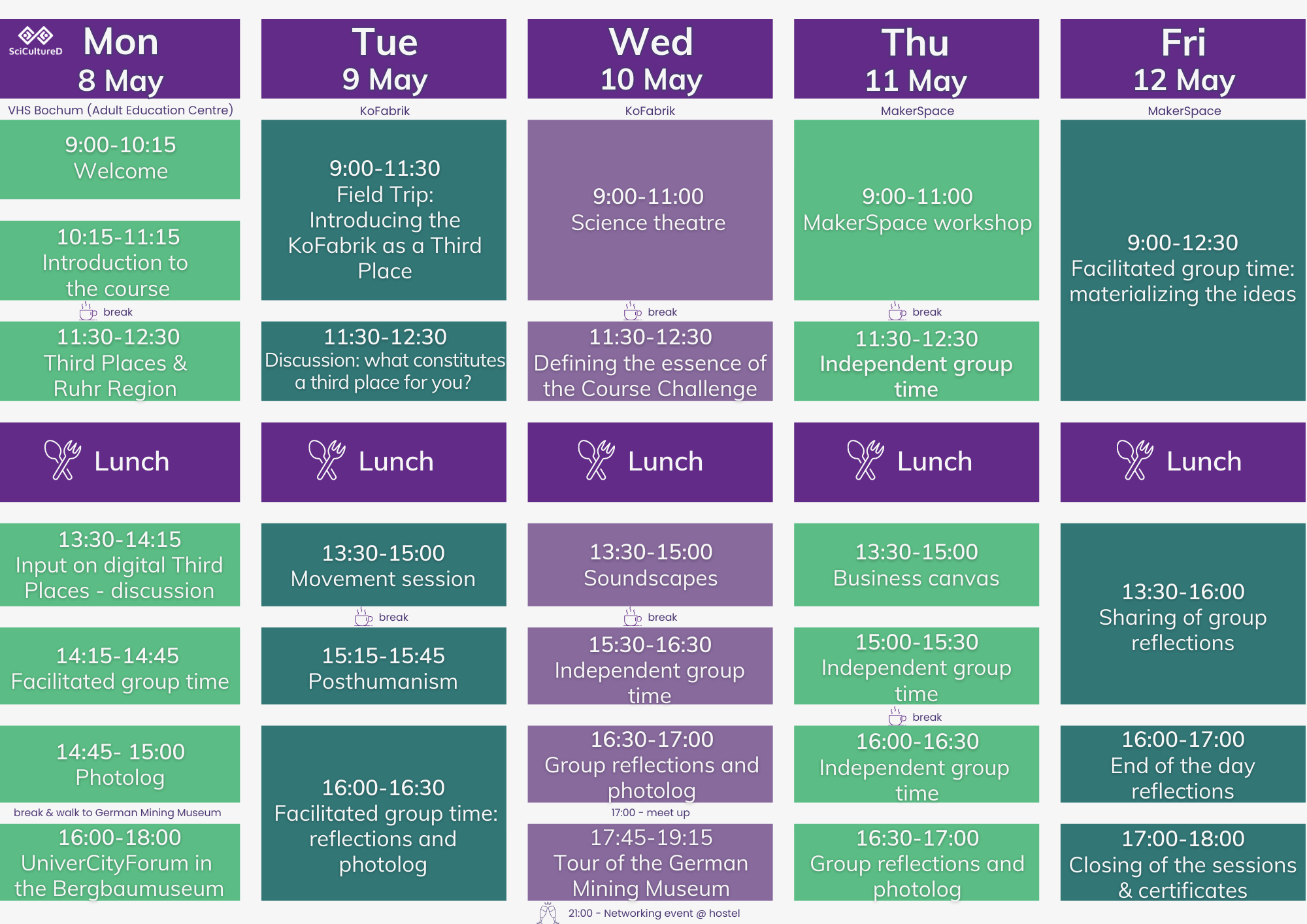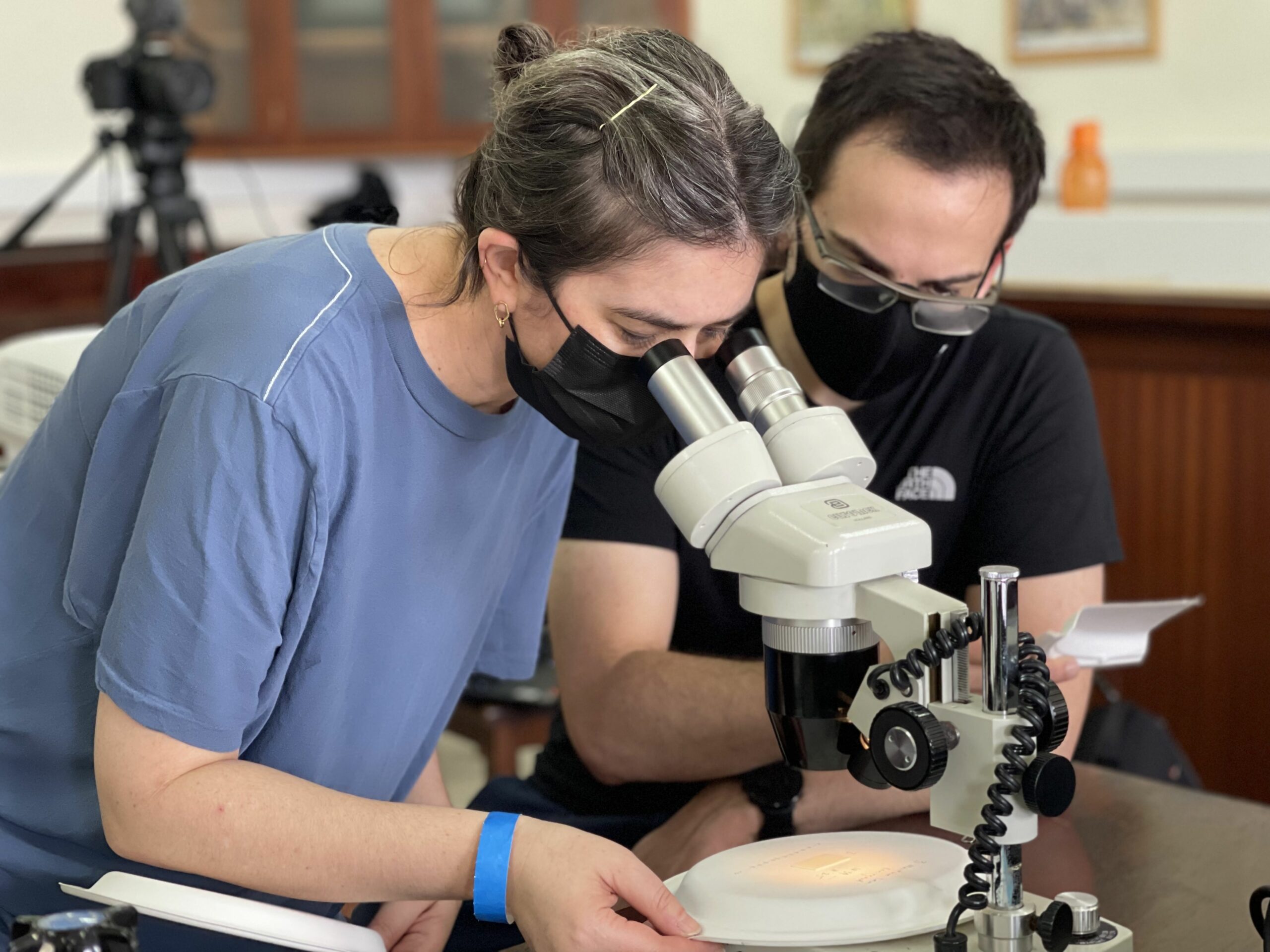Theme and Programme
Home > Theme and Programme
Why does transformation need Third Places and how can they be designed?
Third places are open spaces that differ from the two other environments we live in private homes and workplaces/schools/universities. Examples of third places include cafes, maker spaces, public libraries, bookstores, and arts organizations like galleries, theaters, and museums but also “virtual spaces” that offer accessible meeting opportunities on a “neutral ground”.
From the 8th until the 12th of May 2023, SciCultureD participants from different backgrounds and stakeholders from the city of Bochum will develop innovative ideas on how to develop “Third Places” as centers for more inclusive and participatory education.
How could we activate "Third Places" as future venues for the co-production and sharing of knowledge?
How could these places represent the diversity that exists in their surrounding community? Which methodologies, spaces, and tools could be integrated to activate “Third Places” as venues for transdisciplinary collaborations? What could educational institutions learn from these places? Do they need to be physical? Can we create digital or hybrid meeting spaces which provide similar opportunities to connect?
The Programme
During the course, participants will work in groups on a project to explore Third Places as locations for co-creation.
They will work in transdisciplinary teams to discuss how to activate “Third Places” as future venues for the co-production and sharing of knowledge.
Different possibilities will be explored through a Design Thinking process. By applying dialogic Creative Pedagogies that place at the forefront ethics, embodiment, transdisciplinarity, communality and agency, participants will be guided to move from how things are, towards how things could be or ways in which we might encourage them to emerge (“what if?” thinking).
At the end of the week, participants will communicate their group’s ideas for the potential of Third Places using a creative medium.


